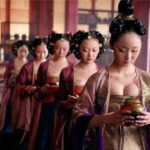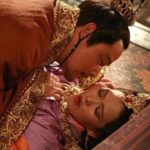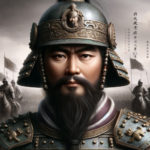The Biography of Emperor Qianlong and the 4 “Mosts” in Chinese History
The real name of Emperor Qianlong is Aitan Gyaclo Hobein Linkhe. He was born on August 13 (corresponding to September 25 in the Gregorian calendar) in 1711. His father was Emperor Yongzheng, then known as Prince Yinzhong. His mother was a concubine of Prince Yinzhong – Lady Ulanara.
There are many rumors about the birth mother of Emperor Qianlong, which are woven into novels and TV dramas. The most widely spread is the story that Emperor Qianlong is the descendant of the Tran family – an official who retired during the reign of Emperor Kangxi, but was switched with a maidservant born in the Prince Yinzhong Mansion.
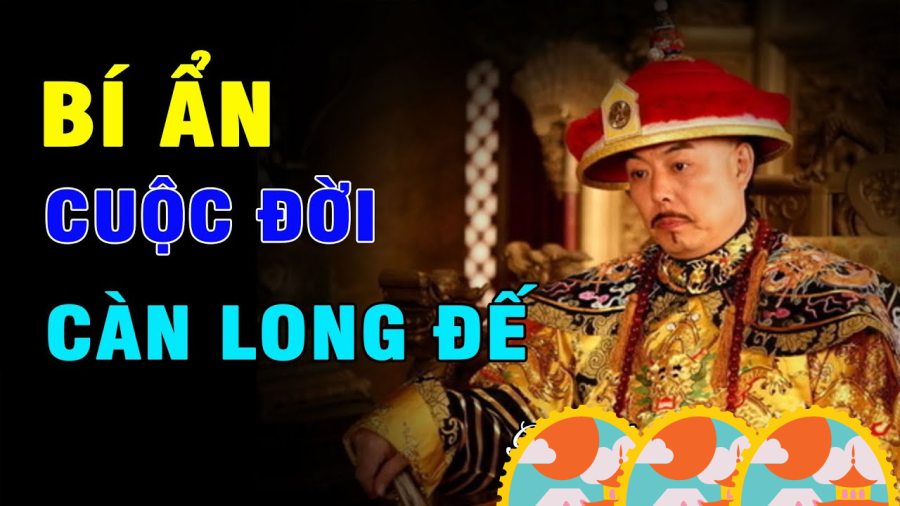
There is another folk legend that the mother of Emperor Qianlong is actually Li Kim Que – a lucky palace maid favored by Emperor Yongzheng during a drunken episode. Because of her humble background and ordinary appearance, she was not bestowed with an imperial rank. After giving birth to Prince Hobein Linkhe, she pretended to be crazy to avoid tarnishing the royal status. However, to this day, there is no historical evidence to prove the mystery of Emperor Qianlong’s birth mother.
On August 23, 1735, Emperor Yongzheng passed away. The imperial court used the pre-prepared directive and publicly announced: The Crown Prince Hobein Linkhe ascends to the throne. On September 3, Hobein Linkhe took the throne in the Thai Hoa Palace, and the following year was the first year of his reign, named Qianlong. On September 27, he moved to the Yonghe Palace.
During Emperor Qianlong’s reign, the economy and military power of the Qing Dynasty reached its peak. At this time, the territory of the Qing Dynasty extended to the Yili River Basin and Tianshan, and the territory of China expanded to its maximum extent, covering more than 13,000,000 km² (compared to the current 9,600,000 km²).
The 4 “Mosts” of Emperor Qianlong
Known as one of the greatest emperors of feudal China, Emperor Qianlong had 4 “mosts.” What are they?
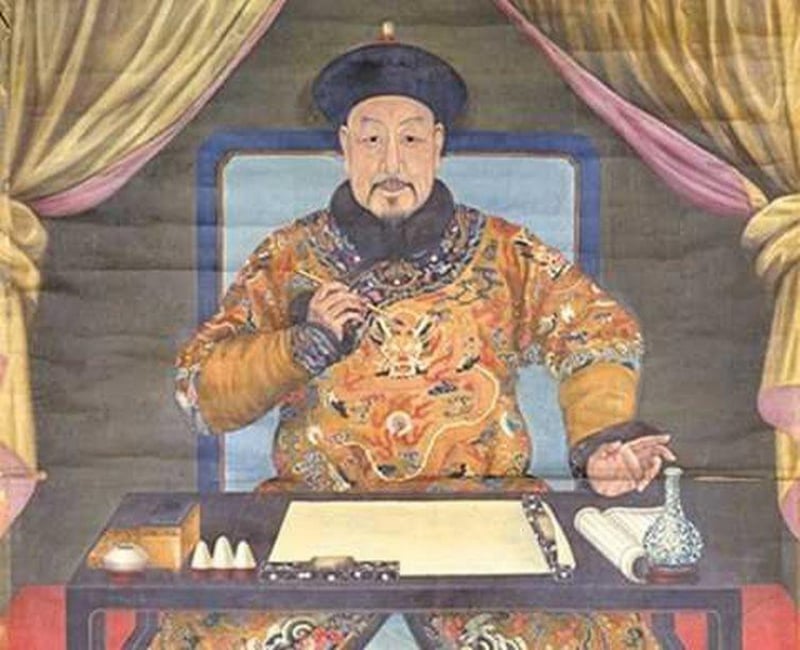
The Longest-Lived Emperor
Emperor Qianlong has always been known as a dashing emperor, romantic with many concubines. There is a saying: “Alcohol is the poison of the liver. Hedonism and sensuality are sharp knives that cut tendons and bones.” It means that a person who indulges in hedonism and sensuality will have a negative impact on health and reduce lifespan. However, Emperor Qianlong passed away at the age of 88, becoming the longest-lived emperor in Chinese history.
The Most Extravagant Emperor
Emperor Qianlong was famous for being the most “playful” emperor of the Qing Dynasty. He often organized grand banquets in the palace and frequently ventured outside the Forbidden City to seek entertainment in various places. According to historical records, the estimated cost of the two celebrations for his 60th and 80th birthdays reached ten million taels of silver at that time.
During a southern tour, Emperor Qianlong mobilized over 1,000 boats alone. Stages were built in every place he passed for singing and performances. There were also 6,000 horses, 600 camels, and nearly 1,000 attendants… From Hangzhou to Beijing, the emperor had 36 imperial residences. Every short distance along the route had a rest stop, with carpeted roads and silk sunshades providing shade.
The Longest Reign
Emperor Qianlong’s reign lasted over 60 years from 1735 to 1796.
In 1796, he abdicated the throne to his son Gia Khanh, not because of death or declining health, but because he did not want to exceed the length of his grandfather Kangxi’s reign (61 years) – a person whom Emperor Qianlong greatly respected. After becoming the retired emperor, Emperor Qianlong still decided on all major state affairs and used the Qianlong era name within the palace. Therefore, at that time, the Qing Dynasty had “two emperors” coexisting.
The Most Dashing Emperor
Emperor Qianlong had not only the three main palaces with over 40 concubines and thousands of palace maids, but also many folk legends about his romantic affairs. Each of Emperor Qianlong’s consorts had a different beauty, making the Qianlong harem an endless source of inspiration for palace dramas with famous disputes on the screens of Chinese dramas.
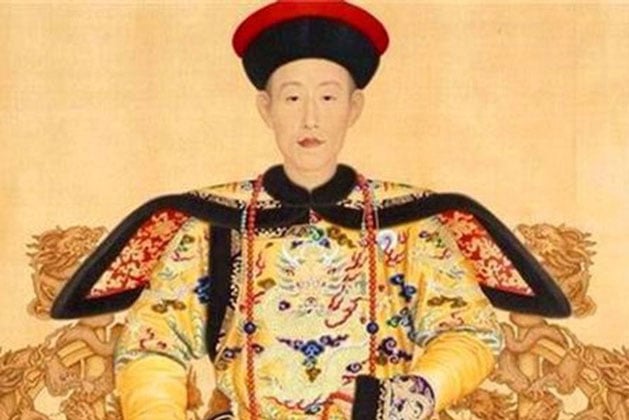
The Secrets Behind Qianlong’s Longevity
Regular Physical Exercise
Emperor Qianlong paid great attention to physical exercise. He emphasized the 4 things to avoid: sitting for a long time, standing for a long time, lying down for a long time, and staring for a long time. In addition, the emperor actively participated in many military exercises, hunting, and tours. This helped improve his resistance to diseases naturally.
Health Habits and Diet
Emperor Qianlong had a disciplined lifestyle: no sleeping in, waking up at dawn, exercising outdoors.
Regarding diet, according to historical records, Emperor Qianlong must have breakfast at 7 am every day, take a walk in the garden after the meal, have lunch around 1 or 2 pm, and then engage in activities such as reading, writing, poetry, and painting. He maintained a two-meal per day diet and never overate. He also regularly took various tonics.
The Self-Cultivation Tenets “Ten Dos and Four Don’ts”
This is Emperor Qianlong’s specific health care regimen.
“Ten Dos” include:
- Knocking Teeth
Purse the lips lightly, and knock the upper and lower teeth against each other to make a sound. Do it at least twice a day, about 100 times each time. Persistence can improve blood circulation in the gums, strengthen teeth, and promote saliva secretion.
- Swallowing Saliva
Saliva has the functions of sterilization and digestion. Swallowing saliva helps neutralize gastric acid and protects the gastric mucosa, promoting food digestion.
- Ear Pulling
Regularly use fingers to flick or massage the ears to prevent blockages of the ear arteries and atherosclerosis of the cerebral arteries, preventing tinnitus, deafness, and improving blood and air circulation, enhancing the function of visual nerves and eye muscles, and eliminating visual fatigue.
- Nose Rubbing
Regularly use the middle finger to rub both sides of the nose, from top to bottom and then reverse along the bridge of the nose, repeating this motion dozens of times, at least twice a day. Regular adherence can prevent colds, rhinitis, sinusitis, and nosebleeds.
- Eye Rotation
Move the eyes up, down, left, and right, which can improve blood circulation around the eyeballs, enhance the function of the optic nerve and eye muscles, eliminate visual fatigue.
- Face Rubbing
Regularly rub the hands together and then rub them on the face, repeating more than 10 times to warm the facial skin. It promotes blood circulation, reduces wrinkles, adjusts blood pressure, and relieves brain fatigue.
- Foot Rubbing
Use the palm of the hand to press and rub the warm sole of the foot, helping to warm the kidney meridian, soothe the liver, improve eyesight, lower blood pressure, and also nourish kidney yang.
- Abdomen Rubbing
Before going to bed, rub the palms together, press the left hand onto the right hand, and then press onto the stomach, rubbing clockwise, expanding the entire abdominal area. This helps promote the recovery of internal organs, aid digestion and absorption, prevent gastrointestinal diseases.
- Stretching Limbs
Stretching limbs helps promote blood circulation, relax the extremities, and keep the joints flexible.
- Anus Squeezing
Consciously squeeze the muscles of the anus regularly to help promote blood circulation around the abdomen, replenish vitality to the intestines, prevent hemorrhoids, constipation, incontinence, and prostate gland enlargement.
“Four Don’ts” include:
- No Talking While Eating
- No Talking While Lying Down
- No Getting Drunk While Drinking
- No Indulging in Sexual Desires
Nurturing the Mind
The longevity secret of Emperor Qianlong is his emphasis on “nurturing the mind,” which includes activities such as reading and writing poetry, calligraphy, playing musical instruments, playing chess, or enjoying tea. Emperor Qianlong had written over 40,000 poems and essays in total.
Unspoken rule stops Qing dynasty concubines from making noise during intimate moments
During the rule of the Qing Dynasty, concubines were required to maintain absolute silence during their encounters with the emperor. They were forbidden from making any sound at all.

























